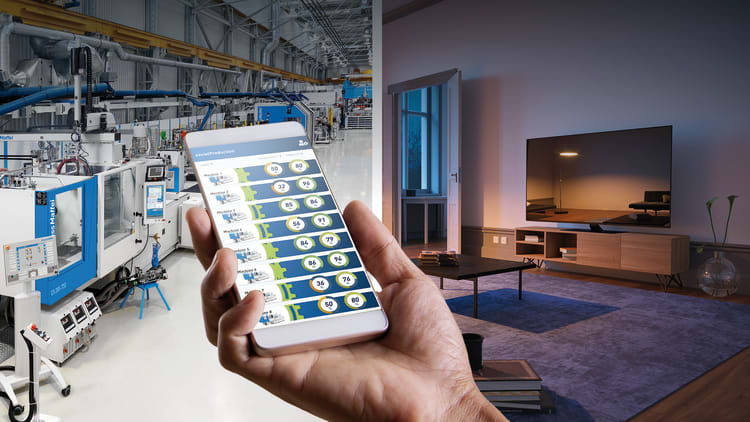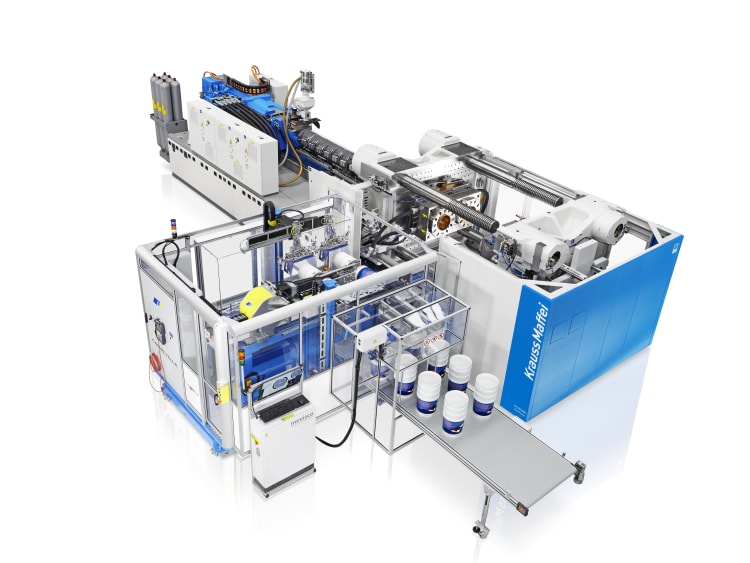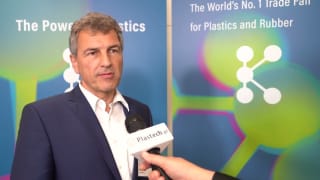The increasing digitalization of injection molding processes also increases the volume of data. This data contains a great deal of information that, in many cases, goes undetected at first glance. How can this information be integrated into process optimization?
We are working to establish a closed loop for ongoing improvements to processes and products. In the first step, the purpose of the data is to enable our customers to run the machines better in order to maximize productivity and availability. Secondly, we feed the utilization data back into development in order to improve our machines. Thirdly, the sales department benefits from the data because it understands customer needs better and can offer tailored solutions. Finally, the cycle also leads to internal process optimization here in-house - for managing technician calls, for example, or for spare parts planning.
Online support, remote service, augmented reality - these functions have already become widespread. What successes has KraussMaffei achieved in this area?
Our digital services also follow an evolutionary process. Our simplest achievements are closely tied to the machine. This includes smartAssist, our mobile audio and video communication system with augmentation that gives the customer's onsite service technicians access to our domain expertise and access to our experts at the global service support centers. The app can also be used with smart glasses to carry out remotely guided maintenance. In the era of social distancing, smartAssist is exactly what our customers are looking for.
Even beyond that, it reduces wait times and downtimes and saves money. Companies had more time during the lockdown to familiarize themselves with new digital tools. Plans call for smartAssist to be expanded with additional augmented reality features in the future. smartAssist is also suitable as a starter project for a co-creation process with the customer and for getting them started with digital transformation.

We are also seeing the rapid development of artificial intelligence. This is particularly becoming noticeable in the social sector, although we frequently see side effects of this development. But let's stick to our line of business. What role does artificial intelligence play for injection molding processes?
Using intelligent algorithms, we can detect anomalies and thus potential interruptions to the process before a standstill occurs. We have developed this into our new digital product, socialProduction.
Based on artificial intelligence technologies, a self-directed learning process monitors all available process parameters of the machine continuously. KraussMaffei's plastics process knowledge is also embedded in the algorithm. An anomaly detection system identifies anomalies in the manufacturing process at an early stage and proactively communicates this information to the user in the dedicated chat for the machine. This timely intervention prevents excess load and unnecessary wear on components or a standstill of the machine - fully autonomously, without any need for configuration.
Another customer requirement is predictive maintenance. Measuring the actual status of machine components or even predicting the expected time of failure can prevent unexpected machine downtimes. Maintenance measures are then taken only when necessary. Digital technologies enable us to record high-resolution process data that can be used to help develop mathematical models of how machine components wear.
Finally, I'd like to ask you to play the role of a visionary. What will the injection molding technology sector look like in 20 to 30 years?
The visions of Industry 4.0 and digital transformation have become reality. Customer-centricity has been a critical success factor along this journey. Standardized and modular machines, supplemented by digital solutions, enable customers to have production that is both highly efficient and flexible at the same time, all the way down to single-piece production. This is supported by a comprehensive and integrative range of services. The mechanical and systems engineering sector has taken on a key role in reducing global greenhouse gas emissions by improving its customers' ecological footprint with a climate-friendly portfolio of products and services. The mechanical engineering companies themselves will make their production climate-neutral and more local, while the machines they make will have a much wider range of application than they do today because of their automation and digitalization.
Digitalization and hyperconnectivity have enabled us to compensate successfully for the shortage of skilled workers by integrating increasingly intelligent artificial-intelligence functions into the machine, which regulate and optimize themselves. Furthermore, applications exist that both make certain workflows obsolete and permit preventive action at an early stage.





